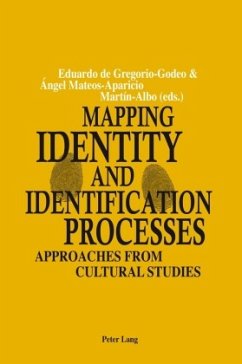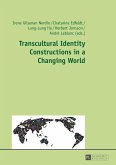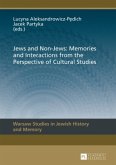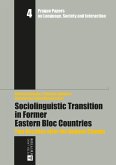This book deals with the subject of identity and identification within contemporary cultural studies and includes a selection of papers from the 14th International 'Culture & Power' Conference held in Ciudad Real, Spain, in 2010. The volume contributes to contemporary debates on identity-construction practices from various theoretical positions in different social, historic and national contexts. The initial section presents various theoretical discussions on how identity construction and identification phenomena are framed within current disciplinary debates about cultural studies and its future as an academic inter- and transdisciplinary field of enquiry. In the following sections, identity and identification processes are analysed from a variety of perspectives.
In particular, the articles delve into the construction of marginalised identities and the exploration of identification processes that subvert dominant, established or accepted cultural identities. The authors explore the role of print media and videogames in constructing and representing identities; they examine the construction of masculinities and femininities in film, music and gay liberation movements; they analyse the interplay between globalisation and nationalism and its impact on cultural products in Asia or Africa; and provide examples of cultural history approaches to the articulation of several national identities. Considered together, the chapters engage with the most relevant concerns pervading identity theory and cultural studies today.
In particular, the articles delve into the construction of marginalised identities and the exploration of identification processes that subvert dominant, established or accepted cultural identities. The authors explore the role of print media and videogames in constructing and representing identities; they examine the construction of masculinities and femininities in film, music and gay liberation movements; they analyse the interplay between globalisation and nationalism and its impact on cultural products in Asia or Africa; and provide examples of cultural history approaches to the articulation of several national identities. Considered together, the chapters engage with the most relevant concerns pervading identity theory and cultural studies today.








